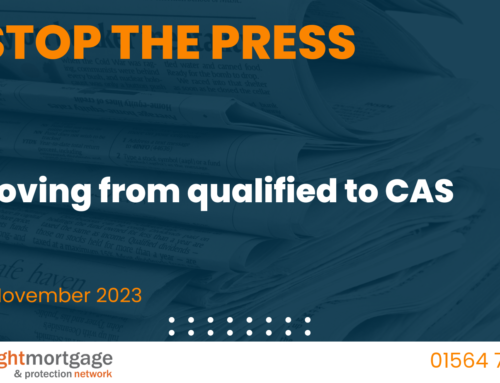Protection Update 18th February 2022
Joint Life Policies & Unmarried Couples – Use a Trust?
Hello and welcome to this week’s protection update.
Now on Wednesday this week, we looked at the subject of Trust on our “Writing Protection Policies into Trust” webinar.
Did you attend? I know quite a few of you did, but if you did miss out and want to attend; we are running one more of these webinars next Tuesday 22nd February at 10am.
I’ve added the registration link to this week’s protection update.
Register for Writing Protection Policies into Trust Webinar – 22nd February >>
Now this week I had a couple of conversations with Tammie Cook from Home Finance Solutions (Hello Tammie!) and we spoke about a trust query; and I wanted to share with you and make it this week’s main topic in this protection update as I think there are some good sales angles and reasons to get in touch with your clients.
The query concerns what to do when you’ve got a couple of unmarried clients who need some protection cover – specifically life insurance.
How do you set up cover for them?
Let’s say you’ve just arranged a joint mortgage?
Should you write a joint life first death life assurance policy?
Well…
Maybe… Maybe Not?
Let me explain what I mean.
If a couple are not married, they are not each other’s next of kin.
The idea behind a joint life first death policy is that when one of the lives assured dies; the other can make the claim and will receive the policy proceeds.
This is what happens if the clients are married or if the clients are not married if they happen to be lives assured and plan owners of a joint life first death policy.
So why’s it a problem?
Well, it’s to do with HMRC.
Let me give you the legal explanation.
If a joint life first death policy is held by an unmarried couple; in the event of a claim (because one of the lives assured has died), the life company will deal with the surviving owner and that’s because they have legal title under the Law of Property Act 1925.
However, you also need to consider the ‘beneficial interest’.
Each person owns 50% of the beneficial interest of a jointly owned policy.
So, when one of the lives assured dies; the market value of their share is included in their IHT calculation as a “gift” to the survivor.
That means 50% of the value of the policy is counted in the estate of the deceased partner. And that’s even though the surviving partner has made the claim and received 100% of the policy sum assured.
So, why’s that an issue? Let’s say the sum assured of the joint life policy is £300,000.
Well, if you’ve effectively artificially inflated the estate of the deceased person by £150,000…
Is that going to cause a tax charge for IHT? Maybe, maybe not. We just don’t know whether this will be a problem because we don’t know what someone’s future worth is going to be and we don’t know when they are going to die.
This is a problem specific to unmarried couples.
So, what’s the answer? I remember selling lots of joint life policies to my mortgage clients and I know for a fact, lots of them were not married.
Can we fix it for existing situations where we’ve got unmarried clients who have joint life policies?
There is an easy fix…
Have you guessed it?
Write it into Trust – is the correct answer.
One of the legal technicians at Vitality provided this explanation this week…
If the joint life policy is written into Trust, then it is outside the estate of both settlors (both clients, both lives assured)
But for joint life policies, we use a special type of trust called a Survivorship Trust (and by the way, every life company who offer joint life first death policies have these). We talked about these on the Trust webinar this week.
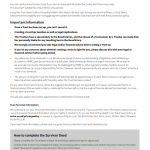 | 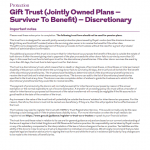 | 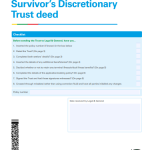 | 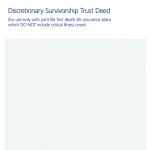 | 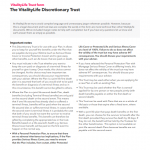 |
The way it works is that if both settlors die within 30 days of each other; then the trustees hold the trust fund for the beneficiaries. So, if you think about it; if both clients/settlors die, then they can’t use the funds from the life policy so these are held in the Trust and will be paid to the appropriate beneficiaries.
There won’t be any delays due to probate on second death either.
But if we look at the other situation where only one of the lives assured dies; that means one settlor survives. ‘Surviving’ technically means surviving the other life assured/settlor by 30 days. (With Aviva it’s 31 days).
In that situation, the trustees hold the trust fund for that settlor’s benefit. So the person who survives, will receive all of the policy proceeds and this trust says they are absolutely entitled to them.
The Vitality technician explains “That means there is no value include the estate of the deceased settlor for IHT purposes”.
After the death benefit is paid and that value will simply be in the estate of the surviving owner.
So that is a call to action?
Do you have clients who are unmarried? Do they have a joint life policy? Should you speak to them about looking to write that policy into Trust – YES you should!
The situation with HMRC is clear. They do attribute 50/50 of the sum assured of a joint life policy to each life assured.
But let me be clear… we are not giving inheritance tax planning advice. There might be inheritance tax to be paid on the estate of some of our clients and we’re not looking at that.
We’re just looking at the life policy and all of this is to make sure that we’re not going to cause any problems in the estate of the person who dies.
And remember, writing a joint life policy into a trust will make sure there is a clear direction of travel in terms of who should get the policy proceeds in the event of a claim.
It will also make sure the pay-out is as quick as it can be. We’re talking about a difference of a couple of weeks versus potentially several months or even years.
The alternative solution for unmarried couples is that they take out single life policies and write them into trust for each other’s benefit. If they split up, they can change the beneficiaries quite easily.
You can also do life of another where each partner ‘owns’ the other partners policy, but this isn’t as flexible to adapt to circumstances which might change in the future.
But I’d say the golden rule for unmarried couples is to make sure the policy is written into trust.
I’ve been a big fan of helping advisers understand the mechanisms of how trusts work over the years.
I don’t think life offices collectively have made it particularly easy for advisers because they all have their own processes which are a little bit different; even though the client objective is exactly the same.
But, using Trusts does demonstrate your expertise and professionalism.
It’s something your clients simply can’t do themselves.
If they approach a solicitor to draft up a trust; it will cost them hundreds of pounds.
So that’s it from me for another week.
Remember I’ve added a link to next weeks trust webinar in this protection update.
Register for Writing Protection Policies into Trust Webinar – 22nd February >>
Have a great weekend and I’ll see you soon!



